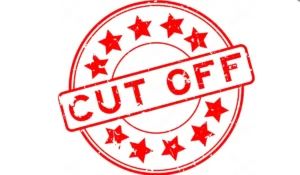Q1. निम्नलिखित में से कौन सा पोषक तत्व पौधों की कोशिका भित्ति का संरचनात्मक घटक है?
(a) मैंगनीज
(b) पोटैशियम
(c) फ़ॉस्फ़ोरस
(d) कैल्शियम
(e) उपरोक्त में से कोई नहीं
Q2. पत्ती और तने जैसे कुछ भागों में लचीलेपन का श्रेय किसकी प्रचुरता को दिया जा सकता है?
(a) पैरेन्काइमा
(b) कौलेन्काइमा
(c) स्क्लेरेन्काइमा
(d) जाइलम और फ्लोएम
(e) उपरोक्त में से कोई नहीं
Q3. निम्नलिखित में से किसमें प्रतिपिंड (एंटीबॉडी) का निर्माण होता है?
(a) RBC
(b) रक्त प्लेटलेट
(c) रक्त प्लाज्मा कोशिकाएं
(d) डोनान की झिल्ली
(e) उपरोक्त में से कोई नहीं
Q4. एक लंबा जम्पर कूदने से पहले दौड़ता है क्योंकि इससे वह:
(a) अधिक दूरी तय करता है
(b) संवेग संरक्षण बनाए रखता है
(c) दौड़ने से ऊर्जा प्राप्त करता है
(d) संवेग प्राप्त करता है
(e) उपरोक्त में से कोई नहीं
Q5. निम्नलिखित में से किसमें गुणसूत्रों की संख्या अधिकतम होती है?
(a) मनुष्य
(b) टेरिडोफाइटा
(c) हाथी
(d) ब्रायोफाइटा
(e) उपरोक्त में से कोई नहीं
Q6. दो बराबर और विपरीत बल बना सकते हैं:
(a) बलाघूर्ण
(b) युग्म
(c) शक्ति
(d) उपरोक्त सभी
(e) उपरोक्त में से कोई नहीं
Q7. तापमान में वृद्धि के साथ, द्रव की श्यानता –
(a) बढ़ती है
(b) घटती है
(c) अपरिवर्तित रहती है
(d) द्रव की प्रकृति के आधार पर बढ़ या घट सकती है
(e) उपरोक्त में से कोई नहीं
Q8. निम्नलिखित में से कौन शरीर में संक्रमण से लड़ता है?
(a) RBC
(b) WBC
(c) रक्त प्लाज़्मा
(d) हीमोग्लोबिन
(e) उपरोक्त में से कोई नहीं
Q9. निम्नलिखित में से कौन-सा एक विस्फोटक पदार्थ नहीं है?
(a) ट्राइनाइट्रो टाल्यूईन
(b) डाइनाइट्रो ग्लिसरीन
(c) साइक्लो ट्राइमेथिलीन ट्राइनाइट्रामाइन
(d) नाइट्रोक्लोरोफॉर्म
(e) उपरोक्त में से कोई नहीं
Q10. कॉलर कोशिकाएँ किसमें होती हैं?
(a) स्पंज
(b) हाइड्रा
(c) सैंडवर्म
(d) स्टारफिश
(e) उपरोक्त में से कोई नहीं
S1.Ans. (d)
Sol. Calcium activates enzymes, is a structural component of cell walls, influences water movement in cells and is necessary for cell growth and division. Potassium helps in energy flow, manganese is involved in enzyme synthesis and phosphorus makes up backbone of genetic materials like DNA and RNA.
S2.Ans. (b)
Sol. Collenchymas provides malleability and flexibility to certain parts of the plants. Parenchyma is considered to be the soft tissue which makes most of the cell and sclerenchyma is the dead tissue which makes up fibre and provides rigidity to the cell.
S3.Ans. (c)
Sol. Blood plasma cells form 55 – 60% by volume of blood. Antibodies and some other substances such as lysozyme and properdin always occur in the plasma. They serve to destroy bacteria, viruses and toxic substances that may enter into the blood from outside or from body tissues.
S4.Ans. (b)
Sol. A long jumper runs before jumping to maintain momentum. This helps in jumping higher and longer because of inertia of motion gained due to the motion.
S5.Ans. (b)
Sol. Ferns, a group under pteridophytes have large number of chromosomes e.g., Ophioglossum reticulatum has 2n=1260, highest known in all life forms.
S6.Ans. (b)
Sol. When two equal and opposite forces act at the same point, then resultant forces is double than either of the forces or two equal and opposite parallel forces not acting along the same line form a couple.
S7. Ans. (b)
Sol. The viscosity of the liquid tends to decrease with the increase in temperature. The temperature effect on viscosity is different for liquid and gases.
S8. Ans. (b)
Sol. Different types of WBCs or white blood cells help in fighting against infectious agents. These are named as macrophages, lymphocytes etc.
S9.Ans. (d)
Sol. Nitrochloroform is a broad-spectrum antimicrobial which is used as a fungicide, herbicide, insecticide and nematicide. It is also known as Chloropicrin.
S10.Ans. (a)
Sol. Collar cells occurs in sponges and located at the anterior end of each choanocyte.



 Bihar ANM Recruitment 2026 Update: 8938 ...
Bihar ANM Recruitment 2026 Update: 8938 ...
 UP LT Grade Teacher Mains Apply Online 2...
UP LT Grade Teacher Mains Apply Online 2...
 Bihar Jeevika Cut Off 2026: इतना हाई गया...
Bihar Jeevika Cut Off 2026: इतना हाई गया...










